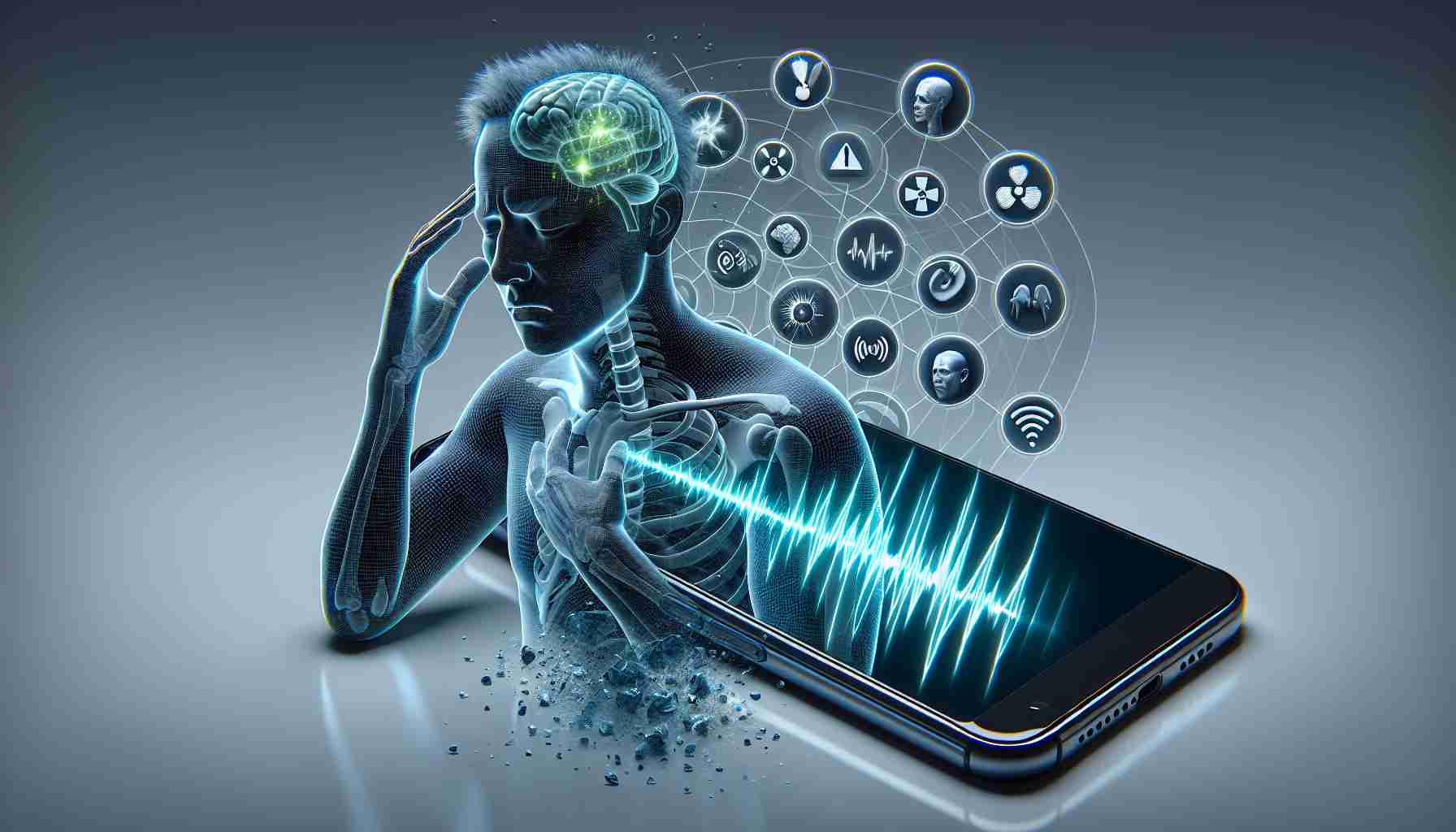Mobile Devices: A Risk to Wellness?
Despite the significant benefits communication devices bring to our daily lives, they also pose numerous health risks to humans. Medical experts warn that radiation from mobile phones and domestic appliances poses a severe threat to both brain health and physical and psychological well-being. Harmful bacteria and germs, hearing impairment, neck pain, finger and wrist strain (sometimes called “texting thumb”), addiction, “phantom” phone vibrations, and sleep deficiency are among the negative impacts of phone use, affecting people of all ages, from the very young to the elderly.
Use With Caution: Mobile Technology and Health Risks
Given the indispensable role of mobile devices in the world today—with more than half of the global population, particularly in African and developing countries, relying on mobile technology—it’s vital to understand how to manage these tools safely. Extensive studies have drawn connections between phone use and brain cancer, particularly relating to tumors in the brain’s outer layer on the side most commonly held to the ear and tumors on the auditory nerve, especially among individuals who have been using phones for six years or longer.
Psychologists advocate for caution in the direct use of the phone against the ear or for making calls when the device is plugged into an electrical outlet during charging. These activities carry the risk of electrical shock should the charging cable insulation be damaged, which could be life-threatening in certain situations, such as using the phone in the bath.
Effective Strategies to Mitigate Mobile Risks
To minimize these dangers, experts recommend strategies like limiting children’s use of wireless devices due to their higher susceptibility to radiation effects, reducing the frequency and duration of mobile phone usage, keeping the phone at a safe distance of at least six inches from the body, using earpieces, and favoring the left side of the head over the right while talking without an earpiece. It is also suggested to curtail the use of other wireless gadgets like Wi-Fi, cordless phones, and microwaves.
Life doesn’t need to be tethered to the phone; it’s about controlling your use of technology, rather than letting it control you. Some psychological professionals suggest setting the phone to airplane mode during rest times and consistently keeping it at a safe distance, particularly overnight, to foster a healthier relationship with our mobile devices.
Facts not mentioned in the article that are relevant to the topic include:
– Studies have shown that high exposure to mobile phone radiation can adversely affect male fertility by decreasing sperm count and motility.
– There is ongoing research examining whether mobile phone radiation can affect the blood-brain barrier, potentially leading to neurological diseases.
– Some studies suggest that blue light emitted by mobile phone screens can disrupt the body’s circadian rhythm, leading to sleep problems.
– Mobile phone use has been associated with mental health issues, including anxiety and depression, potentially exacerbated by constant connectivity and social media use.
Most Important Questions and Answers:
Is mobile phone radiation dangerous?
While there is ongoing debate, the International Agency for Research on Cancer has classified radiofrequency electromagnetic fields as possibly carcinogenic to humans, and various studies suggest a potential risk, especially with long-term exposure. However, more research is needed to fully understand the risks.
What are the key challenges or controversies associated with the health risks of mobile phones?
A key challenge is the difficulty in establishing a direct causative link between mobile phone use and health issues due to the multitude of factors that contribute to these conditions. Additionally, mobile technology is rapidly evolving, making it harder to study the long-term effects of current devices.
What are some advantages and disadvantages of using mobile phones?
Advantages include instant communication, access to information, and convenience. Disadvantages include potential health risks such as exposure to radiation, digital addiction, and negative impacts on mental and physical health from overuse.
Suggested Related Links:
To learn more about the impact of mobile devices on health, consider exploring:
– World Health Organization (WHO) for information on the health risks from mobile phone usage.
– International Commission on Non-Ionizing Radiation Protection (ICNIRP) for guidelines on exposure limits to electromagnetic fields.
Remember that it is important to critically evaluate and cross-reference all information, especially as there is much ongoing research and debate in this area.
